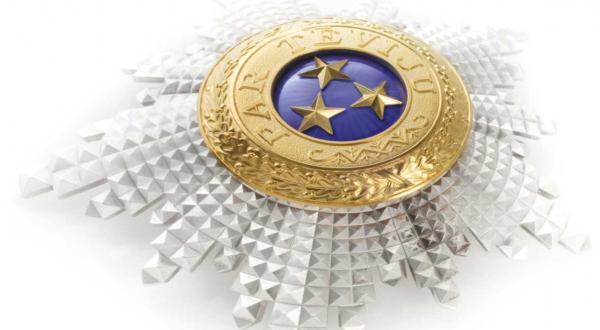Finding Yourself by Helping Others: Ilvija Knospiņa’s Experience in the Mentoring Programme
‘At first helping others just seemed like a good way of spending my free time, but in the end it changed my life completely,’ says Ilvija Knospiņa about the Mentoring Programme at Rīga Stradiņš University (RSU). Last summer she agreed to become a mentor to four foreign students helping them adapt to life in Latvia. It turned out, however, that the mentoring programme helped her the most.

After three years of studying Medical Engineering, Physics and Public Health Ilvija finally followed her dream of becoming a doctor after a conversation with one of the students she was mentoring. This autumn she will begin her studies at the RSU Faculty of Medicine.
Every year about 300 new students from abroad come to RSU. Although the majority of these students come from Germany and Scandinavia young people from more than 50 countries make Riga their home for several years. RSU introduced the Mentoring Programme nine years ago to make it easier for students to get used to the University and their new place of residence. ‘Last year 112 mentors were matched with 681 foreign students and a similar network of assistants helped local students integrate into RSU. The mentors help students understand the study process, and help them acclimatise socially as well,’ says Agnija Birule the co-ordinator of the programme and an international relations officer.
The role of a mentor is to be both a counsellor and an adviser assisting new students with personal matters as well as with issues concerning their study environment. Although Ilvija had heard about the mentor network while studying in the Public Health study programme, she got involved when she started working at the International Department. Mentors attend a training programme before starting their job – this summer four such programmes will be organised before the arrival of the new students. A prospective mentor should attend one of these training days during which they are prepared to be able to work with cultural differences and receive information on the most common issues that new students need help with. When the training is over mentors receive the contact information of the new students who will come under their supervision. In Ilvija’s case, these were four young women from India and Romania.
Roshika Fernando, a representative of the RSU International Students’ Association (ISA) who has been both a mentee and a mentor, emphasises the importance of new mentors receiving the support they need when they need it. This is the responsibility of the Mentoring Programme’s coordinators. It is possible to shadow a mentor first in order to understand how the system works and how much time and involvement it requires to help allay any worries the new mentor might have. ‘Each mentor takes on a six month commitment. The first month is the most important as this is when newcomers have the most questions,’ says Roshika.
Although her six-month period is already up, Ilvija still meets and maintains a relationship with the students she mentored, which through the mentoring experience, has now grown into a friendship. ‘It’s inspiring to have someone you have helped also be able to help you. We can just meet and talk about life,’ says Ilvija. She has established a particularly close friendship with Sabina-Maria, a public health student from Romania. It was during conversations with the Romanian student that Ilvija realised that her true vocation was medicine, and that her decisions to study medical engineering and public health were the result of being afraid to take this big step. Sabina-Maria encouraged and inspired her and was the first person to clearly say that ‘no matter how unrealistic your dreams may seem, you have to do what you really want to do!’
Ilvija emphasises that the mentoring programme was a very useful experience that helped her understand others better, as well as get to know herself. ‘Although I wasn’t so sure of myself in this role at first, I eventually gained a lot when I stepped out of my comfort zone,’ says Ilvija. Roshika emphasises that it is worth being a mentor because it is a great opportunity to meet people and to make new friends.




